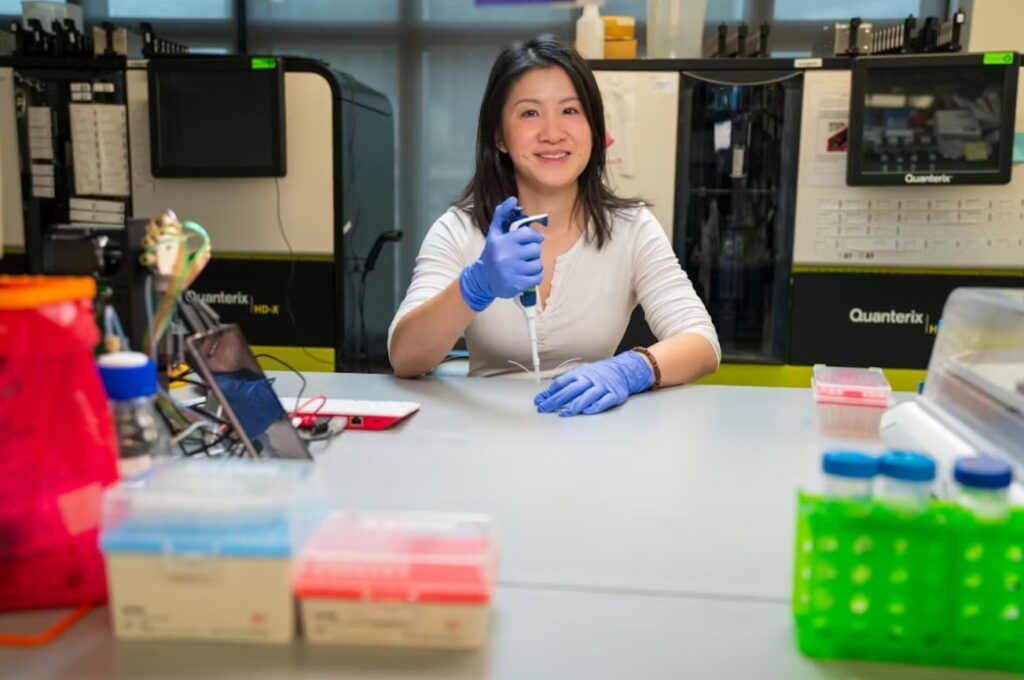
Postdoctoral fellow Gina Wang at Harvard’s Wyss Institute is helping to develop a first-of-its-kind device that could one day transform how amyotrophic lateral sclerosis (ALS) is monitored and potentially diagnosed.
As part of the NERVE Validation Project, Wang is working on ultra-sensitive technology to detect abnormal RNA molecules inside extracellular vesicles – tiny particles in blood and other body fluids that carry proteins and RNA linked to disease. Because current diagnostic tools cannot «see» ALS-related RNA splicing defects, drug developers lack a precise way to tell whether their treatments are hitting the right targets.
Wang’s device aims to fill that gap by enabling longitudinal monitoring of patients’ responses to experimental therapies. Industry partners developing ALS drugs could use the platform to check if a drug is working and adjust treatment accordingly, paving the way for more effective therapies and, eventually, refined diagnostic tools.
Trained in basic science, Wang shifted into translational medicine after realising that single-molecule imaging methods from her PhD work could be repurposed for biomarker detection. She says the Wyss Institute’s focus on moving technologies out of the lab, and its support from business development and communications teams in connecting with industry, have been key to pushing the NERVE project towards real-world impact.
Kursiv Uzbekistan also reports that Uzbekistan plans to increase the share of energy-efficient and environmentally friendly products in the construction materials sector to 25% next year and 35% by 2030, according to a presentation reviewed by President Shavkat Mirziyoyev.













